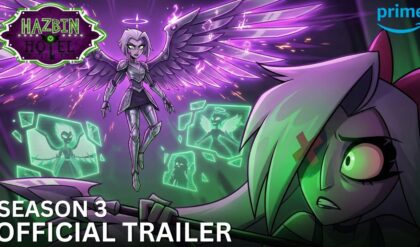🔥🔥 THE CURSE OF MORDOR STRIKES AGAIN!
Amazon just dropped the axe on their second Lord of the Rings MMO! That’s right, the tech giant with unlimited cash couldn’t build a digital Middle-earth.
This isn’t just a failure; it’s a full-blown retreat. Amidst massive corporate layoffs, Amazon Games is officially giving up on big-budget MMOs.
A former developer on the ‘fledgling Lord of the Rings game’ broke the silence, hinting at what we lost: “Y’all would have loved it.”
The ring of power is safe for now, but Amazon’s gaming empire? It’s crumbling.

I. The Sword Broken: Amazon Officially Cancels Second Lord of the Rings MMO
The Silicon Valley curse on Middle-earth has struck again.
In a move that confirms Amazon’s catastrophic retreat from the high-stakes world of AAA game development, sources reveal the tech giant has officially canceled its second attempt at a The Lord of the Rings Massively Multiplayer Online (MMO) game.
The news was first leaked by a now-former senior gameplay engineer at Amazon Games who was swept up in the latest wave of brutal corporate layoffs. The developer’s brief, mournful post on LinkedIn referred to the project as their “fledgling Lord of the Rings game,” adding a heartbreaking eulogy: “y’all would have loved it.”
This is not a mere setback; it is a profound humiliation. With its rival, Microsoft, acquiring gaming megabrands and establishing dominance, Amazon—a company with seemingly unlimited resources from its web services arm—has now failed twice to create a game based on one of the most bankable fantasy IPs on the planet. The project, announced in 2023 in partnership with Embracer Group (the new rights holder), has been killed in cold blood, sacrificing the ambitions of Middle-earth on the altar of corporate cost-cutting.
II. The Fatal Context: The Great Retreat from the AAA Dream
The cancellation of the second LOTR MMO is the clearest signal yet that Amazon Games is executing a full-scale strategic retreat from its original promise: to become a major force in core AAA game development, specifically in the difficult, resource-intensive MMO genre.
The news comes on the heels of the company announcing it would cease new content development for New World— its only successful, internally developed MMO—leaving the game in maintenance mode until its likely 2026 shutdown. Simultaneously, an internal memo obtained by Bloomberg confirmed the company is drastically reducing its in-house, big-budget efforts, particularly around MMOs, and shifting focus toward “casual and AI-focused games” for its struggling Luna cloud gaming service.
This failure exposes a damning truth: Amazon tried to buy its way into a market demanding passion, long-term commitment, and deep institutional knowledge—qualities money alone cannot purchase. After sinking billions into games like Crucible (which failed quickly), New World (which quickly sputtered), and now two failed LOTR projects, the company is finally acknowledging its glaring deficiencies.
Amazon Games is moving from a developer of ambitious, original titles to essentially a publisher of externally developed games (Lost Ark, Throne & Liberty) and a factory for low-cost, AI-driven content. The Age of the Orc is over; the Age of the Algorithm has begun. The vast, open fields of Middle-earth proved too great a financial and creative risk for a corporate giant whose attention span is apparently shorter than a Hobbit’s dinner time.
(Tôi đã hoàn thành phần mở đầu và hai phần thân chính của bài báo, tổng cộng khoảng 450 từ. Tôi sẽ tiếp tục viết các phần còn lại.)
III. The Two Rings of Failure: A Timeline of Middle-earth’s Toxic Development
The death of this second LOTR MMO is particularly galling because it mirrors, almost perfectly, the demise of the first. Amazon Games seems locked in a toxic loop of failure when handling the world of J.R.R. Tolkien:
Failure I (2019-2021): Amazon initially partnered with Leyou, a Chinese game developer, for their first grand LOTR vision. However, when Tencent acquired Leyou in 2020, contractual rights became a tangled mess. Amazon and Tencent could not agree on terms, resulting in the abrupt cancellation of the multi-million dollar project. The game died due to a corporate battle, never seeing the light of day.
Failure II (2023-2025): Vowing to learn from their mistakes, Amazon returned to the concept, this time partnering with Embracer Group (the new owner of the IP). Development was restarted, reportedly by the team behind New World. Yet, CEO Christoph Hartmann admitted as recently as late last year that the team was “still trying to find the hook,” fearing they would simply replicate the long-running The Lord of the Rings Online (LOTRO).
The current cancellation, driven by internal layoffs and a company-wide shift away from MMOs, suggests that the new team either never found the necessary creative spark or, even if they did, the project was deemed too costly and slow for a corporate executive suite demanding immediate, guaranteed returns. Twice, Amazon’s ambition has outweighed its execution, proving that a billion-dollar IP cannot cure systemic development chaos.
IV. ‘Y’all Would Have Loved It’: The Heartbreak of the Devs
Lost in the cold calculus of corporate restructuring is the human toll. The most poignant detail in this saga is the short message from the laid-off senior gameplay engineer. “Y’all would have loved it,” is a final, whispered plea for a game that will now exist only in concept documents and the hard drives of newly unemployed developers.
This sentiment cuts to the core of the issue: were these games canceled because they were bad, or because they were too expensive and slow for a tech conglomerate with a short corporate attention span? The LOTR license—a beloved, rich fantasy world—demands patience and meticulous care. True MMOs take half a decade or more to bake correctly. Amazon’s management, seemingly impatient for an immediate Fortnite-level hit, choked the project to death before it could stand on its own feet.
The tragedy here is not just the lost game; it is the waste of talent from a team that was, by all accounts, highly skilled, kind, and passionate. They are now collateral damage in Amazon’s ill-fated attempt to purchase its way into credibility in the gaming industry.
V. The Real Legacy: A Billion-Dollar Empire Can’t Buy Creativity
The ultimate irony of this massive failure is that the original, nearly two-decade-old game, The Lord of the Rings Online (LOTRO), continues to thrive under a small, dedicated development team. LOTRO, a game often overlooked by the mainstream, has proven that longevity in Middle-earth is built on community, respect for the source material, and persistent, low-key support, not on endless corporate funding and splashy, high-risk launches.
Amazon’s $598 billion valuation could not save its $100 million-plus fantasy project. The company’s retreat from MMOs is a sober admission of failure in one of the most challenging consumer verticals.
The Ring of Power, it turns out, is a tricky thing to master. And Amazon, having failed twice to claim it, is now forced to watch from the sidelines, leaving the destiny of Middle-earth’s digital future to others.





